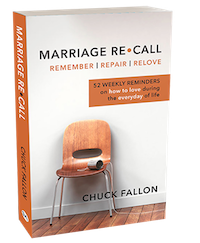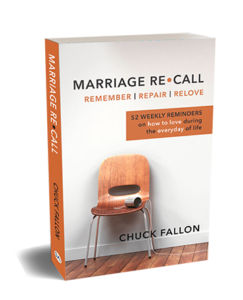“I can’t handle all the drama. My spouse overreacts to everything!” I hear this complaint regularly during counseling. “But what if your spouse isn’t overreacting? What if your spouse is having a perfectly appropriate response to a stimulus you simply do not see?”
I’m not presenting this as the gospel truth, but I challenge you to consider the possibility.
For instance, let’s say you spent the morning trimming bushes and trees around the yard and unknowingly picked up a splinter. You come into the house, grab a glass of water at the wrong angle and it pushes the splinter into a waiting nerve ending that screams to your brain, “Get me out of here!” as your arm obediently jerks backward.
Do you stop in that moment and say, “Wow, I sure overreacted to that! After all, it’s only a glass of water!” Of course not—because you were responding appropriately to the pain.
We can waste a lot of time judging emotions with common expressions like, “You shouldn’t feel like that,” or, “Don’t be such a drama queen.”
Do they work? If you’re honest enough to admit it you know these rarely advance toward a solution. Instead, they typically trigger defensive and heels-dug-in comments like, “Don’t you tell me how I should feel!”
The next time your spouse “overreacts” how could you respond if you believed the emotion was perfectly appropriate? What could you do differently to empathize with the pain behind the emotion; instead of assuming it was out of line? Would you show interest? Demonstrate compassion? Be patient and kind? Give this some thought and then practice with conviction, so you have confidence when your spouse “overreacts” the next time.
A good place to start is by asking for more information. Remember, you can’t see the stimulus, so you need some help to understand. “What happened? You’re really upset! Can I do anything to help?” Then listen for the “splinter” that is causing the emotion.
You don’t have to overreact to your spouse’s overreaction! You and your spouse may both find some profound relief that comes from removing emotional splinters—and enter into a deeper place of connection.
You can do this!




